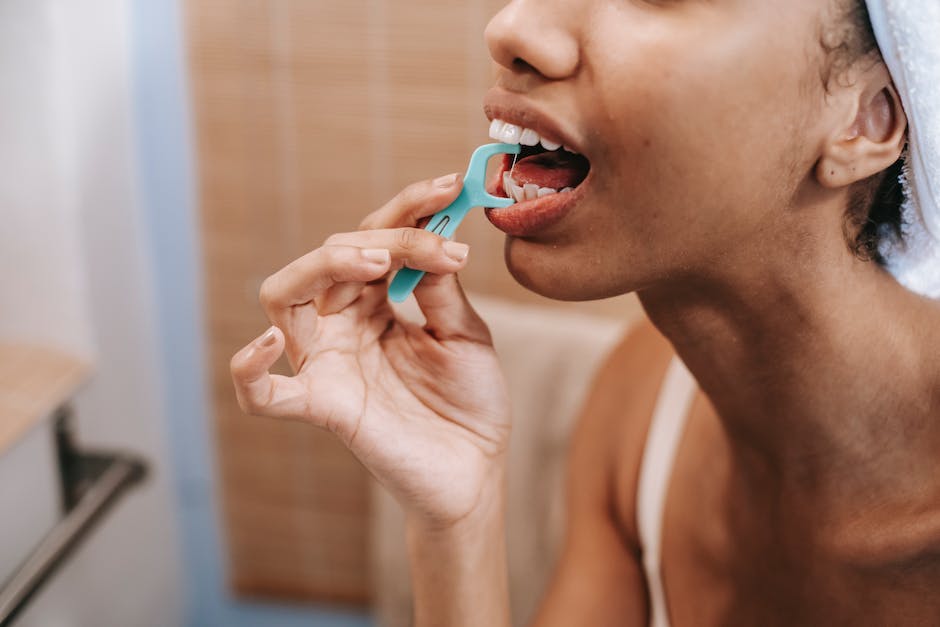Microdosing is a growing trend that has gained attention in recent years as a way to experience the benefits of cannabis without the psychoactive effects usually associated with it. While most discussions around microdosing focus on THC (delta-9-tetrahydrocannabinol), a lesser-known but equally intriguing compound called THCa (tetrahydrocannabinolic acid) is also emerging as a popular choice for daily wellness.
THCa is the raw, non-psychoactive form of THC found in the cannabis plant. When heated, THCa converts into THC, the compound responsible for the euphoric high. However, many individuals are now exploring the therapeutic potential of THCa in its raw form through microdosing. By consuming small amounts of THCa regularly, users aim to take advantage of the compound’s potential anti-inflammatory, analgesic, and neuroprotective properties, without experiencing the intoxicating effects of THC.
Microdosing with THCa offers a subtler approach to incorporating cannabis into daily wellness routines. Unlike traditional cannabis consumption, where the aim is to achieve a specific desired effect, such as relaxation or pain relief, microdosing focuses on harnessing the therapeutic benefits of cannabis without altering one’s state of mind. This makes it an attractive option for professionals and individuals who want to maintain focus, productivity, and clarity while incorporating cannabis into their wellness routines.
The practice of microdosing with THCa is still relatively new, and research on its specific benefits is limited. However, anecdotal evidence suggests that it can help with a range of conditions, including chronic pain, inflammation, anxiety, and depression. Advocates of THCa microdosing also report increased energy levels, improved mood, enhanced focus, and reduced stress without the “high” typically associated with cannabis consumption.
In conclusion, microdosing with THCa represents a promising avenue for those seeking the potential therapeutic benefits of cannabis without the psychoactive effects. As more individuals discover and explore the advantages of this method, further research and understanding of THCa’s effects will likely develop. Whether you are a professional looking to integrate cannabis into your daily wellness routine or an individual seeking alternative therapeutic strategies, microdosing with THCa offers a discreet, gentle, and potentially beneficial approach to consider.
Understanding THCa: What is it and how does it differ from THC? (2)

Understanding THCa: What is it and how does it differ from THC?
In recent years, the use of cannabis for therapeutic purposes has gained significant attention. Among the various compounds found in the cannabis plant, tetrahydrocannabinol (THC) has been widely recognized for its psychoactive effects. However, another cannabinoid, tetrahydrocannabinolic acid (THCa), is also garnering interest for its potential therapeutic benefits.
THCa is the raw, unheated form of THC that is naturally present in the cannabis plant. Unlike THC, THCa does not possess psychoactive properties, meaning it will not induce the characteristic “high” typically associated with cannabis consumption. This key difference makes THCa a particularly attractive option for those seeking the therapeutic benefits of cannabis without the mind-altering effects.
But how does THCa differ from THC on a chemical level? The distinction lies in the molecular structure and the presence of a carboxyl group in THCa. This carboxyl group gives THCa its acidic properties and prevents it from binding directly to cannabinoid receptors in the endocannabinoid system, preventing the psychoactive effects usually associated with THC consumption.
However, it is important to note that when heated, THCa undergoes a process known as decarboxylation, where the carboxyl group is removed, converting THCa into THC. This process occurs when cannabis is smoked, vaped, or cooked at high temperatures, activating the psychoactive effects of THC.
So, why consider microdosing with THCa? Microdosing involves consuming very low doses of a substance, such as THCa, to elicit therapeutic benefits while minimizing any potential side effects. By harnessing the non-psychoactive properties of THCa and consuming it in controlled amounts, individuals can potentially experience the potential therapeutic effects of cannabis without impairment or unwanted intoxication.
Research suggests that THCa may possess various therapeutic properties, including anti-inflammatory, analgesic (pain-relieving), neuroprotective, and antiemetic (anti-nausea) effects. These potential benefits make THCa an intriguing option for individuals looking to incorporate natural and subtle wellness strategies into their daily routines.
It is worth mentioning that because THCa is still being researched, there is a need for further scientific studies to fully understand its therapeutic potential, ideal dosages, and possible interactions with other medications. As with any wellness approach, consulting with a healthcare professional or cannabis specialist is highly recommended before incorporating THCa microdosing into your routine.
In conclusion, THCa offers an alternative way to experience the potential therapeutic benefits of cannabis without the psychotropic effects commonly associated with THC. Microdosing with THCa could be a viable option for those seeking subtle and controlled wellness strategies in their daily lives. Though further research is needed, the potential therapeutic properties of THCa make it an interesting area to explore for individuals looking for alternative wellness solutions.
The emerging popularity of microdosing with THCa (3)

The emerging popularity of microdosing with THCa (tetrahydrocannabinolic acid) has caught the attention of individuals seeking subtle therapeutic strategies for daily wellness. As more people are looking for natural alternatives to maintain their well-being, the concept of microdosing with THCa has gained traction in the wellness and cannabis communities.
Microdosing involves consuming minimal doses of a substance to experience its desired effects without the psychoactive impact typically associated with larger doses. THCa is the non-psychoactive precursor to THC, the compound responsible for the “high” commonly associated with cannabis. By consuming small amounts of THCa, individuals aim to benefit from its therapeutic properties while minimizing any potential intoxicating or impairing effects.
One of the main reasons for the increasing popularity of microdosing with THCa is its potential to provide a range of wellness benefits. THCa is known to possess anti-inflammatory properties and may help alleviate chronic pain. It is also believed to have neuroprotective effects, potentially supporting brain health and cognitive function. Additionally, THCa has been studied for its potential anti-anxiety and anti-depressant properties, making it an appealing option for those seeking natural remedies for mental well-being.
Moreover, microdosing with THCa allows individuals to maintain a steady level of therapeutic effects throughout the day without experiencing the intense peaks and valleys often associated with conventional cannabis consumption. This approach enables users to carry out their day-to-day activities with clarity and focus, making it suitable for those who need to maintain a high level of professionalism and productivity.
As with any wellness practice, it is crucial to approach microdosing with THCa responsibly and with the guidance of a knowledgeable healthcare professional. Dosage consistency and accurate potency evaluation are key factors to consider when embarking on a microdosing journey, as individual tolerance levels may vary.
In conclusion, the emerging popularity of microdosing with THCa offers a unique and appealing approach to daily wellness. With its potential therapeutic benefits and minimal psychoactive effects, this practice is attracting individuals who seek natural alternatives to support their overall well-being. As research and understanding continue to grow in this field, microdosing with THCa has the potential to be a valuable tool for those who prioritize professional clarity and balance in their lives.
Benefits of microdosing with THCa: Promoting daily wellness without intoxication (4)

Microdosing with THCa, a non-intoxicating compound found in cannabis, has gained attention as a subtle yet effective therapeutic strategy for promoting daily wellness. This approach involves consuming very small amounts of THCa, usually below the threshold for psychoactive effects, to harness the potential benefits without experiencing a traditional “high.”
One of the primary benefits of microdosing with THCa is its ability to support daily wellness without causing intoxication. Unlike THC (delta-9-tetrahydrocannabinol), which is responsible for the psychoactive effects commonly associated with cannabis, THCa remains non-intoxicating until it is heated or decarboxylated. This means that individuals can experience the potential therapeutic effects of cannabis without impairment or cognitive alterations, allowing for increased productivity and functionality throughout the day.
Microdosing with THCa has been reported to have a range of potential wellness benefits. Many individuals find that it helps alleviate symptoms of stress, anxiety, and depression, offering a gentle yet effective mood enhancement. Additionally, THCa has been studied for its anti-inflammatory properties, making it a potential natural remedy for pain management, inflammation-related conditions, and potentially even neurodegenerative diseases.
Furthermore, microdosing with THCa is often lauded for its versatility and adaptability to individual needs. With such precise control over dosage, individuals can tailor their consumption to achieve the desired effects without surpassing personal comfort levels. This enables users to experiment with different dosages and timing to find the optimal therapeutic regimen for their specific wellness goals.
It is essential to note that the benefits of microdosing with THCa are still being explored, and further scientific research is needed to fully understand its potential. As with any wellness practice, it is advisable to consult with a healthcare professional before incorporating THCa microdosing into your routine, particularly if you have any underlying health conditions or are taking medication.
In summary, microdosing with THCa offers a promising approach to daily wellness without intoxication. By harnessing the potential therapeutic benefits of cannabis in a controlled and precise manner, individuals can experience a range of positive effects on mood, inflammation, and overall well-being. As the scientific understanding of THCa continues to evolve, more insight into its potential benefits can be gained, making it an intriguing avenue for those seeking natural alternatives for daily self-care and wellness.
Exploring the potential therapeutic applications of THCa (5)

THCa, also known as tetrahydrocannabinolic acid, is a non-psychoactive compound found in raw cannabis plants. While THCa has gained attention for its potential medical benefits, it has often been overshadowed by its counterpart, THC. However, recent studies and anecdotal evidence suggest that THCa may offer unique therapeutic applications worth exploring.
1. Pain Management: THCa has shown promise as a potential tool for managing chronic pain. Research has indicated that THCa may possess anti-inflammatory properties, offering relief to individuals suffering from conditions such as arthritis, fibromyalgia, and neuropathy. By reducing inflammation in the body, THCa may help alleviate pain without the psychoactive effects associated with THC.
2. Neuroprotective Effects: Studies have suggested that THCa might have neuroprotective properties, making it a potential candidate for treating neurodegenerative diseases such as Alzheimer’s and Parkinson’s. THCa has been found to inhibit the enzyme acetylcholinesterase which is responsible for breaking down acetylcholine, a neurotransmitter crucial for memory and cognitive function. By preventing the breakdown of acetylcholine, THCa may help preserve brain health and slow down the progression of such diseases.
3. Nausea and Appetite Stimulation: THCa has shown promise in alleviating nausea and stimulating appetite. This can be particularly beneficial for individuals undergoing chemotherapy or suffering from conditions like HIV/AIDS. By activating certain receptors in the endocannabinoid system, THCa may help reduce feelings of nausea and increase appetite, ultimately promoting overall wellness and aiding in maintaining proper nutrition.
4. Anti-inflammatory Properties: Inflammation is at the root of various illnesses, from autoimmune disorders to cardiovascular diseases. THCa has demonstrated anti-inflammatory effects, which may provide relief for individuals dealing with chronic inflammation. By potentially suppressing the production of pro-inflammatory agents, THCa could contribute to managing inflammation-related conditions and promoting a healthier immune response.
5. Mental Wellbeing: Preliminary research suggests that THCa may also have potential applications in managing mental health conditions, such as anxiety and depression. While more studies are needed, the interaction of THCa with the endocannabinoid system shows promise in regulating mood and reducing anxiety levels. This could offer an alternative or complementary approach to traditional pharmaceutical medications, potentially minimizing side effects and improving overall mental wellbeing.
In conclusion, THCa presents a fascinating avenue for exploring subtle therapeutic strategies for daily wellness. While its benefits are still being researched, studying this compound offers the potential for alternative treatments that may be more targeted, gentle, and with fewer side effects. As always, it is important to consult with medical professionals before incorporating any new therapies into your wellness routine.
How to properly microdose with THCa: Dosage guidelines and considerations (6)

When it comes to microdosing with THCa (tetrahydrocannabinolic acid), it is essential to approach it with caution and adhere to proper dosage guidelines. While THCa is a non-psychoactive compound found in raw cannabis, it has shown potential therapeutic benefits in promoting daily wellness. Here are some considerations and recommendations to ensure a safe and effective microdosing experience:
1. Start low and go slow: Begin with the lowest possible dose of THCa and slowly increase it over time. This approach allows you to gauge your body’s response and find the optimal dosage for your desired effects. Remember, the goal of microdosing is to experience subtle benefits, so resist the temptation to jump to higher doses.
2. Consult with a healthcare professional: If you have any underlying health conditions or are currently taking medications, it is crucial to consult with a healthcare professional before incorporating THCa into your wellness routine. They can offer personalized guidance and ensure there are no potential interactions or contraindications.
3. Consider individual sensitivity: Everyone’s tolerance to THCa may vary. Factors such as body weight, metabolism, and sensitivity to cannabinoids can influence how you respond to microdosing. It’s essential to be patient and listen to your body to find your optimal dosage.
4. Quality of THCa products: When selecting THCa products for microdosing, choose high-quality, lab-tested options from reputable sources. This way, you can be confident about the purity and potency of the product you are consuming. Look for products that provide detailed information about the THCa content per serving or dose.
5. Keep a journal: Maintaining a journal can help you track your microdosing journey effectively. Take note of the dosage, time of consumption, effects experienced, and any other observations you find relevant. This detailed record will enable you to fine-tune your microdosing regimen and assess its long-term impact on your daily wellness.
6. Observe the effects: Pay close attention to how microdosing with THCa affects your overall well-being. Look for subtle improvements such as enhanced focus, reduced stress, improved mood, or better sleep quality. Remember, the effects of microdosing may not be immediately noticeable or profound, so it is essential to be patient and consistent in your approach.
Microdosing with THCa offers a potential avenue for exploring subtle therapeutic strategies for daily wellness. By following these dosage guidelines and considerations, you can embark on a safe and effective microdosing journey to support your overall well-being. As always, it’s essential to approach any new wellness practice responsibly and prioritize your overall health and safety.
The importance of sourcing high-quality THCa products (7)

In the world of alternative wellness practices, microdosing with THCa has gained significant popularity for its potential therapeutic benefits. However, it is important to recognize that not all THCa products are created equal. To truly harness the potential of this subtle therapeutic strategy, it is crucial to source high-quality THCa products.
High-quality THCa products ensure that you are getting the purest and most potent form of this cannabinoid. This means that you can confidently rely on its efficacy and consistency, making your microdosing experience more reliable and effective.
By sourcing from reputable and professional manufacturers, you can be assured that their THCa products undergo rigorous testing and adhere to stringent quality control standards. This ensures that the product you are consuming is free from contaminants and impurities that could potentially compromise your health and well-being.
Moreover, high-quality THCa products are often derived from organic and sustainably grown cannabis plants. These products are cultivated with utmost care, without the use of harmful pesticides or chemicals. By choosing products from ethical and responsible sources, you are not only prioritizing your own wellness but also supporting a sustainable and eco-friendly industry.
When it comes to microdosing with THCa, precision is key. High-quality products often come with accurate dosing information, allowing you to have better control over your intake. This precision enables you to start with minimal doses and gradually increase as needed, while minimizing the risk of unwanted side effects.
It is also important to consider the extraction methods used by the manufacturers. High-quality THCa products are typically extracted using advanced and safe techniques such as CO2 extraction. This ensures that the final product retains its therapeutic properties without any harmful residues or solvents.
Ultimately, sourcing high-quality THCa products is crucial for a safe and effective microdosing experience. By choosing reputable manufacturers who prioritize quality, sustainability, and precision, you can enhance your daily wellness routine and explore the therapeutic potential of microdosing with THCa with confidence.
Personal experiences and testimonials: Real-life stories of individuals benefiting from THCa microdosing (8)

In the world of holistic wellness, microdosing with THCa has been gaining attention for its potential therapeutic benefits. Many individuals have reported positive experiences with this subtle approach to incorporating THCa into their daily wellness routines. In this section, we will explore real-life stories and testimonials from individuals who have embraced THCa microdosing and experienced its therapeutic effects.
1. Jennifer, a working professional in her mid-thirties, shares her experience with THCa microdosing. Struggling with anxiety and stress, she sought a natural remedy to support her overall well-being. Jennifer started microdosing with THCa and noticed a significant reduction in her anxiety levels throughout the day. She described feeling more focused, calm, and able to handle daily challenges with ease.
2. Mark, a career-driven entrepreneur, had been dealing with chronic pain due to an old sports injury. Frustrated with relying on prescription medications, he decided to explore alternative options. After discovering THCa microdosing, Mark was pleasantly surprised by how effective it was at managing his pain. He experienced a reduction in inflammation and discomfort, allowing him to focus better on his work and enjoy a higher quality of life.
3. Sarah, a busy mother and part-time caregiver, struggled with insomnia for years. Sleep deprivation was taking a toll on her emotional and physical well-being. Intrigued by the potential sleep-promoting qualities of THCa, she decided to give microdosing a try. Sarah found that incorporating THCa into her nightly routine helped her relax and drift off to sleep more easily. She woke up feeling refreshed and energized the next morning, ready to take on the day’s challenges.
4. John, a professional athlete, was searching for a natural method to accelerate his recovery and enhance his physical performance. After researching various options, he discovered THCa and its potential benefits for athletes. Microdosing with THCa not only aided in his recovery from strenuous workouts but also improved his focus and concentration during training sessions and competitions. John credits THCa for helping him achieve peak performance and stay in top shape.
These are just a few examples of real-life stories showcasing the positive impact of THCa microdosing on individuals’ lives. While everyone’s experience may vary, it is inspiring to witness the potential therapeutic benefits this subtle strategy can provide. It is essential to research and consult with professionals before incorporating THCa or any other wellness practice into your routine to ensure its suitability for your specific needs.
Potential drawbacks and risks of THCa microdosing (9)

While THCa microdosing has gained popularity for its potential therapeutic benefits, it is important to consider the potential drawbacks and risks associated with this practice. Although THCa is a non-psychoactive compound found in raw cannabis, it is converted to THC when heated or decarboxylated. Here are a few factors to keep in mind before embarking on THCa microdosing:
1. Lack of research: While there is growing evidence supporting the potential benefits of cannabis and its derivatives, including THCa, the long-term effects of microdosing are still relatively unknown. Limited scientific research on THCa microdosing means that we have a limited understanding of its potential risks and side effects.
2. Individual sensitivity: Each person’s biochemistry is unique, and individual responses to THCa microdosing may vary. While some individuals may experience positive effects, others may find it ineffective or even have adverse reactions. It is important to be aware of your body’s response and adjust the dosage accordingly.
3. Interaction with medications: If you are currently taking medications, it is crucial to consult with a healthcare professional before considering THCa microdosing. Cannabis compounds might interact with certain medications, either enhancing or reducing their effects. Your doctor can help you evaluate potential interactions and decide if microdosing with THCa is a safe option for you.
4. Legal considerations: The legal landscape surrounding cannabis can vary from one jurisdiction to another. THCa microdosing may not be legal in all regions, and it is essential to understand the laws and regulations of your area before engaging in this practice. Ensure that you are in compliance with local regulations to avoid any legal issues.
5. Quality control: When microdosing with THCa, it is crucial to ensure the quality and purity of the product. As with any cannabis-related product, there is a risk of contamination or inconsistent dosing. Purchasing from reputable sources and verifying lab testing results can help mitigate these concerns.
In conclusion, while THCa microdosing shows promise as a subtle therapeutic strategy for daily wellness, it is important to be aware of the potential drawbacks and risks associated with this practice. Further research is needed to fully understand the long-term effects and individual variability. As with any wellness practice, it is recommended to consult with a healthcare professional before incorporating THCa microdosing into your routine.

